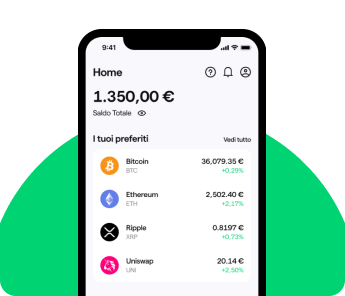
In 1995, one of the most expensive domains in Internet history was stolen under mysterious circumstances. Here is the story of the theft of Sex.com!
Would you expect drama, mystery and bounty hunters from the affairs of an Internet domain? The reports from the Web are surprising, especially those from the beginning of its history. Similarly to the Crypto.com domain, Sex.com was disputed by many. At stake were court cases, millions of dollars and an epic scam. If blockchain had been involved in this story and if Sex.com had been an NFT domain, would things have turned out differently?
The mysterious theft of the Sex.com domain
This story takes place mainly in a US courtroom. On one side we find Gary Kremen, an engineer and businessman, who was clever enough in the 1990’s to register a series of generic domains such as Jobs.com, Housing.com and Sex.com. On the other, Stephen Cohen, a hardened fraudster, who became his worst enemy. Kremen had registered the domain Sex.com in 1994, the year he also founded the online dating site, Match.com.
Eight months after registering the domain, the engineer received an unusual message informing him that the email associated with the Sex.com domain had been changed. For Kremen, this was suspicious and upon checking, he realised that the domain ownership information had been changed. In other words, Kremen was no longer listed as the rightful owner of Sex.com. The engineer immediately called the indicated helpline number to ask why instead of his name there was that of a stranger, on the phone he found Cohen’s calm voice: ‘because the domain is not yours’. From here on, for the next twenty years, Kremen and Cohen will chase each other playing cops and robbers between the United States, Mexico and the rest of the world.
Could blockchain save the Sex.com domain?
It was initially unclear how Cohen had managed to pull off the theft of Sex.com, a domain worth millions of dollars even then. Apparently, Cohen cheated Network Solutions, the company that had sold the domain to Kremen, by posing as the new owner with a forged letter. Once he had obtained the domain, Cohen started to run the site by selling advertisements and earning half a million dollars a day. All this at a time when there was no Google or search engines, and people surfed the Internet using domain names directly. And not surprisingly, the word ‘sex’ attracted many curious people. Daily visitors to the Sex.com site hit record figures for the time.
Would the theft of the Sex.com domain happen with blockchain? Unlike traditional internet domains managed by centralised providers, the certification of ownership of NFT domains is immutably recorded on the blockchain and therefore difficult to falsify. Perhaps it would not have been so easy for Cohen to steal Sex.com if it had been an NFT domain. You cannot send letters to the blockchain and ask it to modify a smart contract. As with all NFTs, the NFT domain information is transparent and certifies that it is unique and in your possession. And anyone at any time can verify this. This is why NFT domains are used to keep your identity safe on the Internet.
Manhunt in Mexico and Sex.com today
After five years of litigation, Kremen won the case and a precedent was set. Domains are in effect property, even if intangible, and therefore can be stolen. In 2001, Sex.com was returned and Cohen was ordered to pay Kremen $64 million in damages for lost profits from the use of the site. Here begins the second part of the incredible story of the Sex.com domain. Cohen, in order not to reimburse Kremen, fled across the border to Tijuana. The engineer then plastered the Mexican city with ‘wanted’ signs worthy of an old western film and thus unleashed bounty hunters who were unsuccessful. Kremen is still looking for Cohen.
Meanwhile, in 2006, Kremen auctioned Sex.com, which was bought by Escom for USD 14 million. After just four years, Escom was forced to sell the domain because it could not repay its debts and was about to face a lawsuit for insolvency (another trip to court). In 2010, Sex.com passed to Clover Holdings for USD 13 million. Currently, the domain is associated with a pornography site where users can upload and share with other users.
The story of the internet domain Sex.com is key to understanding why the internet needs the blockchain. On the Ethereum Name Service, a platform to buy NFT domains on Ethereum, the NFT domain “Sex.eth” was registered in 2019. While Unstoppable Domains‘ “Sex.crypto” was sold for 230 ETH (about $90,000) in 2020, making it the most expensive “.crypto” domain to date.
Will history repeat itself? Maybe even NFT domains with a ‘sex’ theme will be contested like Sex.com, for sure there will be a blockchain to support them with all its advantages.




